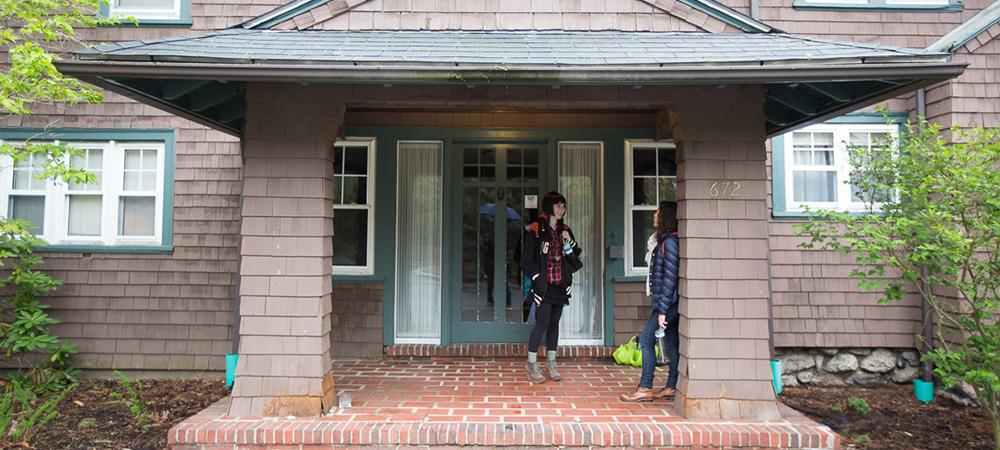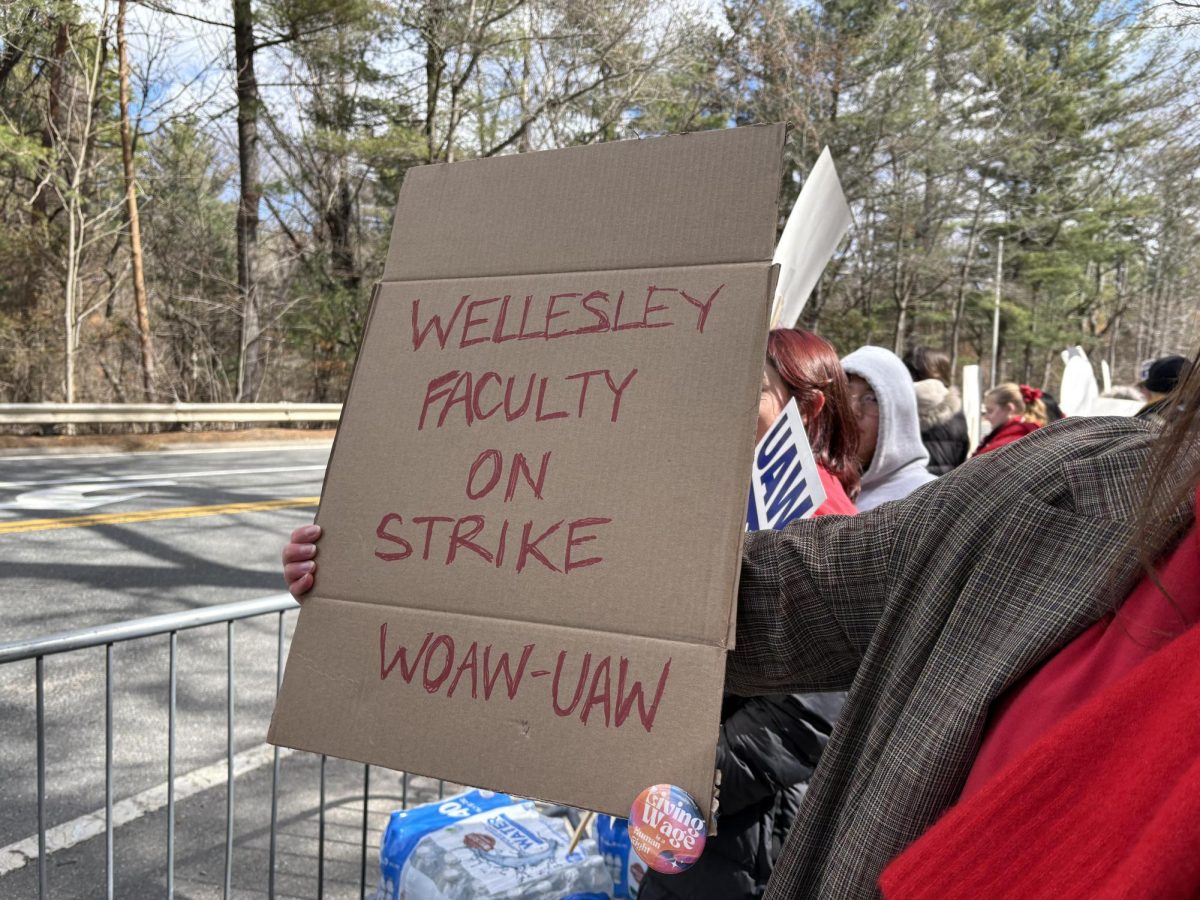On May 5, Davis Scholars received an email from Dean Joy St. John, the Dean of Admissions, informing them that the Davis Scholars part-time program would be ending in Spring 2022. The email detailed the decision made by Dean St. John and President Paula Johnson to remove part-time enrollment due to changing expectations and demographics of the program, the high cost of maintenance and inequity concerns. According to the email, the family of Elizabeth Kaiser Davis ’32, which endowed and continues to support the program, supports the decision.
The Davis Scholar program admits students over the age of 25 who have not yet obtained a bachelor’s degree. According to Dean Susan Cohen, dean of Davis Scholars, less than a quarter of Davis Scholars, of which there are approximately 40, are currently enrolled part-time (in either one or two classes per semester). Soon after the decision was announced, many expressed concerns about the termination of the part-time program.
“I feel that, at a time when the College is committing itself in terms of the strategic plan to inclusive excellence, to exclude a group of women, however small this group may be on campus, is an enormous shame,” Dean Cohen said.
Student reactions
According to multiple sources The News interviewed, current Davis Scholars, both full-time and part-time, are overwhelmingly against this decision. Current Davis Scholar Maria Meza, who applied to the degree program after previously being accepted as a traditional student, stated that she would not have come to Wellesley had there not been a part-time option.
“I would have at least waited to [apply],” Meza said. “I mean, especially because of the pandemic, I needed to figure out my living situation, helping out my family, [and get] more immediate needs figured out before I could even think about coming back.”
Although the change does not affect current students, who will still be allowed to attend Wellesley part-time, many said they would have chosen a different path to obtaining a bachelor’s degree if the program only allowed full-time students.
“That wouldn’t have even been an option for me at that point in my life,” Davis Scholar Marie Aaronian said.
According to Dean Cohen, this is the first major structural change to the Davis Scholar program during her time as the dean of Davis Scholars, which she has been since 2002. However, Davis Scholar Alex Ewing noted frustration with other instances of exclusion of Davis Scholars in the Wellesley community.
“Every time something goes wrong for this program, we’re in a particularly difficult position of deciding whether or not to complain about it or not because it’s difficult to know if what we say will reflect on the program [as a whole],” Ewing said.
For example, Ewing said, the Honor Code Council no longer requires representation of all class years, including Davis Scholars, but the structure of Honor Code Council means that all class years except for Davis Scholars will almost definitely be represented each year.
Additionally, many are concerned that the termination of the part-time program could spell other structural changes to the Davis Scholar program. The size of the program has been dwindling in recent decades; at its peak in the 20th century, according to Dean Cohen, the program had over 100 students at any given time.
Federal and College Expectations
One of the main reasons students believe the part-time program is being terminated is its financial cost to the College. Part-time students pay a lower tuition cost than full-time Davis Scholars and traditional students, as they only take one or two classes per semester.
“You kind of feel like they’re preying on the weak, because we are the smallest community [at Wellesley],” Karner said.
Despite feelings that this decision was primarily made due to finances, Dean St. John explained that this decision, which was in discussion for almost the entirety of the 2020-21 academic year, considered much more than just that.
“Over time it has become more complex to manage and support a small number of students enrolled on a per-course basis because of federal compliance rules and because of the demands and uses of technology,” Dean St. John said. “And so in many ways, we are doing a lot of manual support to work around systems that weren’t designed to have two types of students.”
Complying with the federal government’s expectations affects financial aid, and one of the changing expectations is graduation time. According to Dean St. John, part-time enrollment is open-ended, which is not in alignment with both federal expectations and how the College expects students to work through the curriculum.
However, several students point out how the expectations of traditional students should not be the same as those for Davis Scholars. Ewing mentioned how older students may have children while in the program, even if they originally enroll full-time; students may only take medical leave from Wellesley for a certain amount of time before having to reapply.
The Davis Scholar program mission
In addition to concerns about expectations from the College, some feel as if this decision is at odds with the core of the Davis Scholar Program, as well as the goals and missions of the College as a whole. Wellesley promotes inclusion and empowerment, so to many, this is another barrier to unique perspectives.
“I think an important thing to ask when starting any program and thinking about the parameters is, who is this for?” Sarah Hudson ’18, a former Davis Scholar, said. “And [the Davis Scholar program is] the program for people who are parents, or have jobs, or need to take care of elderly relatives. [Part-time enrollment] is integral to the program because … it’s crucial to be able to build your schedule around your life.”
Many believe that, since the program will only be enrolling students full-time, the amount of Davis Scholars enrolled at Wellesley may decrease even more. According to Cognitive and Linguistic Sciences Professor Angela Carpenter, who attended Wellesley as a Davis Scholar, the College will need to expand its recruitment efforts in the future in light of the decision to cancel the part-time program.
“It behooves the admissions department to get out there and, if they want to keep the program viable, to find the women out there who are able to do this program so it doesn’t just dwindle to a smaller and smaller program,” Carpenter said.
However, some still hope that the College will fall back on this decision and continue to enroll Davis Scholars on a part-time basis. A meeting between Davis Scholars and college administration is scheduled for June.
“In the fall, I remember President Johnson sent out something to the campus that was talking about Wellesley promoting education across the world, and how we really care about how women haven’t had opportunities everywhere, and we are here at Wellesley, and they don’t care,” Ewing said.







Neeraja Deshpande | May 30, 2021 at 3:34 pm
I sincerely hope Wellesley reconsiders its decision here. Some “manual support” here and there seems like a very small price to pay for the value and the life that Davis Scholars, including Part-Time Davis Scholars, bring to Wellesley.